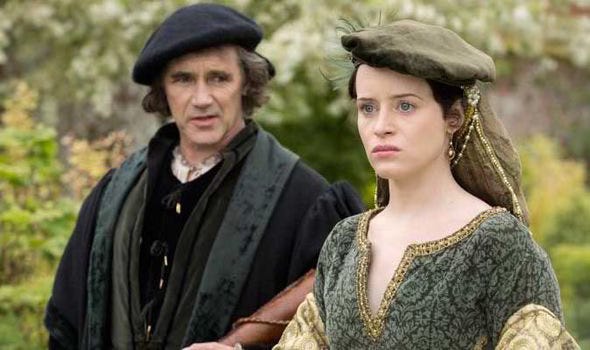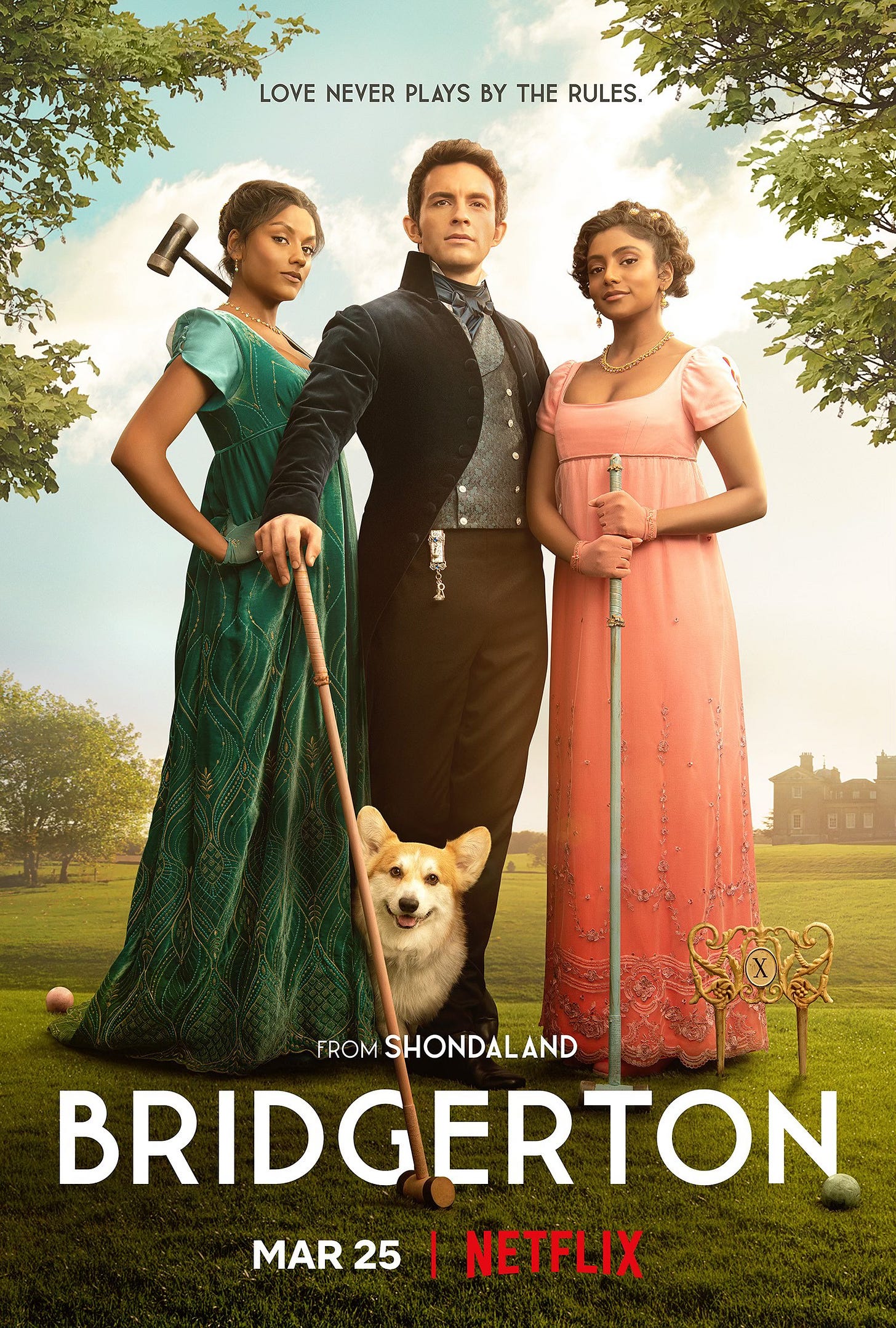Back to the Body
Why do we read historical fiction?
Dear reader,
A less polished version of this piece first appeared in my other Substack dedicated to early book drafts, which I essentially abandoned last fall. (Apologies to those very few who subscribed.) I revive it now as the first in an occasional series on historical fiction, which is related to my current book project. Those of you who are following along with ’s “Wolf Crawl,” his year-long slow-read of Hilary Mantel’s Cromwell Trilogy, may find some of my ideas about these books interesting. Those of you who have read ’s marvelous book The Creation of Anne Boleyn, and her posts on the same topic on her Substack, might find some intersection there as I discuss the ill-fated queen’s treatment in Mantel’s Bring Up the Bodies in a subsequent post. Indeed, my thinking about the body in cultural context owes a great deal to Susan’s extensive work on the subject, which will be apparent to anyone who has read it.
In any case, this is a work in progress, and I invite and encourage discussion and suggestions.
Yours,
John

Why do writers write historical novels, and why do readers read them? Why do directors make films based on historical fiction, and why do audiences watch them? What sorts of entertainment or edification or stimulation do these narratives provide?
Doubtless, there are many possible answers to these questions. The recent television series, Bridgerton, for example, seems to have been created mostly for the indulgence of a sort of historical dress-up fantasy, in this case of a visually beautiful and sexually steamy reimagining of Regency-era England—not that there is anything wrong with such a diversion. The term “costume drama” surely derives from this kind of fantasy as well—which revels in beautiful people wearing beautiful clothes.
But there is an element of curiosity here as well: how did it feel to wear such tight corsets? how would one put on such clothes or take them off? how would such operation affect bodily functions? Or, perhaps more pointedly: what sorts of ideologies or dynamics of power could have insisted on such clothing? Or, to pull back the lens further: what did it feel like to be a person, with sensibilities, assumptions, and modes of self-construction so utterly different from our own? How did one think? How did one’s thinking relate to one’s physical circumstances—bodily, economically, ecologically, sexually?
One might object that such questions are the proper realm of historians rather than of artists, that answering these questions requires the evaluation of evidence, the reading of first-hand accounts, the examination of historical artifacts. Such an objection would not be wrong, exactly, but it might miss the essential point, which is that the desire to experience what it felt like to be a person in the past requires, in addition to research, an imaginative leap—a leap which literary artists may be more adept at making than are academic historians. The most talented historical novelists create, if not a phenomenology of the past, then at least a hypothesis of one—a hypothesis of a phenomenology that strips away the elements of the modern self that tie us so firmly to our present moment and attempts to bring us back to the historical body.
To perform this kind of art successfully, however, requires a kind of theory of the modern self. What makes us different from the people of the past? (And, of course, the answer will much depend on the when and where and who of the particular past in question.) If the writer does not pose this question deliberately, then we are left, indeed, with a costume drama, which essentially teleports modern psychologies and ways of being and thinking to the past in order to look around and live there for a while. Many highly lucrative novels have done just this: one thinks, in particular, of murder mysteries in which a Roman or medieval “detective” uses surprisingly modern methods of deduction to unmask a killer. As entertaining as these sorts of books might be (and many of them are highly entertaining), my interest here is in novels that pose this phenomenological question and attempt, in one way or another, to provide answers to it (for there are, inevitably, many answers).
In the summer of 2022, I led a seminar of seven graduate students and one advanced undergraduate, in which we read three such novels: Hilary Mantel’s Wolf Hall, Arthur Phillips’s The King at the Edge of the World, and Daniel Kehlmann’s Tyll. In addition to these novels, we read a number of critical and theoretical texts on historiography and the historical novel, and we finished with a two-day colloquium that featured the students’ research projects.
A key theoretical voice for us was that of Hayden White, who famously argues that all historical narrative is necessarily fictive and that historical scholarship would benefit from acknowledging this reality. This fictive quality is an inevitable result of the simple fact that the lived reality of this past is lost as soon as it becomes the past, except in memory or documentary evidence, both of which must be pieced together into a subjective shape in order to present a coherent narrative.
As soon as a moment becomes past, it "leaves the body" in a sense. I had expected students to be frustrated by this idea, to insist on some kind of objective knowability of the past, on a firm distinction between history and fiction. But historical fiction, by definition, deconstructs this distinction, and the students were fascinated by this disruption of categories.
In a bit of serendipity, unplanned by me, our three novels each seemed to address this problem of unknowability in a meta-fictive way, and in this way they seemed to project their own critical apparatus for reading them. In Daniel Kehlmann's Tyll, for example, the title character, the author's version of the legendary German trickster figure Tyll Ullenspiegel, contemplates the nature of the "now" and the fact that it is ever shifting and therefore passes into the past as soon as one considers it; the metaphor for this in the novel is the act of tightrope walking, which he calls "running away from falling"—the absolute now in each moment of the walk: “You have to yield to the swaying, have to soften your knees and hips, have to stay one step ahead of the fall. Heaviness reaches for you, but you’ve already moved on. Tightrope walking: running away from falling.”
In Hilary Mantel's Wolf Hall, the narrative derives from an historical moment, the beginning of the English Reformation, that is in one sense meticulously documented, but the central character, Thomas Cromwell, insists that he cannot know even himself, as his shady past recedes into memory, revived only in fragments. Finally, Arthur Phillips's The King at the Edge of the World focuses on an effort to make the subjective objective, to measure the soul of King James of Scotland in order to determine whether, deep down in some kind of essence of self, he is a Catholic or a Protestant.
The students devoured these strange, complex narratives and went back for more. (At least two students reported blazing through the other two books in Mantel's "Cromwell Trilogy," Bring Up the Bodies and The Mirror and the Light.) While they acknowledged the ultimate unknowability of these historical moments, they also demonstrated the futile desire to know—or at least to imagine—the ways that people were human in the past, what that felt like physically and psychologically, what the world looked like from that perspective, what it felt like to be a body in time, without any knowledge of the coming of the steam engine or the atomic bomb or the computer.
This desire, framed by the knowledge of the futility of its actual fulfillment, brought into focus in our class discussion the sense of loss at the center of all of these books. Hilary Mantel called the writing of historical fiction, in part, an act of mourning. It is an ultimately impossible attempt to reanimate the dead. This perspective seems to be at odds with the aforementioned view of the genre as a kind of wish fulfillment for historical sightseeing, a bit of fancy dress-up against a constructed backdrop of movie sets. But this sense of mourning addresses the same desire as the costume drama, though perhaps with a greater self-awareness.
Despite our desire to visit it, the past is lost to us, and even the most studious or empathetic efforts to resurrect it can never really do so. Good historical fiction, however, can provide a marvelous illusion of resurrection.
This summer, in 2024, I am teaching the historical fiction course again, this time to only four graduate students—a small group but keen. Since the Phillips novel is apparently out of print, this time we are reading Mantel’s Bring Up the Bodies instead, so we will begin and end the term with Cromwell, with Tyll Ullenspiegel sandwiched in the middle. I’ll check in a little later in the summer to fill you in on the conversation.
Thanks for reading, from my fancy internet typewriter to yours.





Great question! The idea of all historical narrative being fictive makes sense to me. I also love how meta Mantel is about history and the past in Wolf Hall—the final passages of the first volume about England constantly remaking itself, and putting words like stones in the rattling mouths of the dead, will always stick with me.
“But the trouble is, the maps are always last year’s. England is always remaking herself, her cliffs eroding, her sandbanks drifting, springs bubbling up in dead ground. They regroup themselves while we sleep, the landscapes through which we move, and even the histories that trail us; the faces of the dead fade into other faces, as a spine of hills unto most…
“It’s the living that turn and chase the dead. The long bones and skull are tumbled from their shrouds, and words like stones thrust into their rattling mouths: we edit their writings, we rewrite their lives.”
By writing and reading historical fiction, I feel it’s a way of relating one’s modern self, with modern views and understanding, to people who’s society did not provide the environment to live the same way. The Outlander novels and television show display this conflict when Claire, a woman who lived in 1960s America and attended medical school, time travels to 1700s America and encounters slavery first hand. The reader/viewer contemplates how if they were posed with the same situation, how they would react.
Another aspect that I enjoy is the hero’s journey when that hero may have some very different beliefs from what is considered acceptable today.